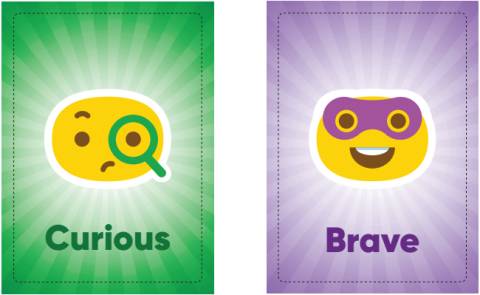Does the thought of your child playing in the mud, dirt, and leaves make you cringe? What if we told you that messy nature play brings with it a whole bunch of benefits for your child mentally, physically, and emotionally? Keep reading to learn more about why getting messy in nature is a good thing for your child and some tips to safely engage in messy nature play.

Builds Emotional Regulation
Emotional regulation refers to the ability to manage and control our emotions in different situations. Messy play can help strengthen emotional regulation by providing a safe and fun environment for children to experience various emotions and learn how to cope with their feelings. They may experience excitement, frustration, curiosity, or even anger as they explore new textures, handle objects, and face challenges during playtime. As they face these emotional experiences, they learn to recognize and manage their emotions, equipping them to handle emotional situations in everyday life.
Teaches Cause and Effect
Messy nature play allows children to experiment and observe the outcomes of their actions in real-time. As they engage with natural materials like mud, water, sand, or leaves, they begin to understand the cause-and-effect relationships in nature. For example, they may notice how water changes the texture of sand or how leaves fall from trees when the wind blows. Understanding cause and effect is important for building critical thinking and a strong foundation for future learning.
Contributes to a Healthy Immune System
Healthy gut flora, or the good bacteria in the digestive system, plays a key role in our overall health and well-being. It helps to strengthen the immune system, supports digestion, and can even improve mental health. Research suggests that exposure to dirt and bacteria through messy nature play can help children develop a diverse and robust gut flora. When children interact with the earth, they come into contact with various microbes that naturally promote a healthy gut microbiome, which is essential in building a strong immune system and preventing future health issues.
Encourages Problem-Solving
Messy nature play invites children to face challenges, solve problems, and think critically as they play. For example, they might figure out how to build a sturdy sandcastle, discover various ways to use a stick, or explore how water can be redirected with tunnels in the mud. As they run into problems and come up with creative solutions, they practice problem-solving skills that will help them throughout their lives.
Tips for Safely Engaging in Messy Nature Play
Ready to dive into messy nature play with your child? Here are some helpful tips and safety considerations:
Find a safe and comfortable environment: Select a spot in your backyard, a local park, or a nearby nature reserve where your child can safely explore and experiment. Ensure the space is free of any hazards such as sharp objects, toxic plants, or unsafe water sources.
Encourage exploration with natural materials: Offer a variety of materials, like leaves, stones, water, or mud, to encourage your child to use their senses and interact with nature, within safe boundaries.
Stay present and participate: Join your child in their play, ask open-ended questions, and express curiosity to help grow their love for learning and exploration. Your presence and supervision ensure your child stays safe while playing.
Set boundaries and expectations: While messy nature play can be a very beneficial experience, make sure to set some limits to keep your child safe. Teach them not to eat or bring home random objects, emphasize the importance of washing hands after their nature adventure, and establish rules about touching unfamiliar animals or insects to avoid potential bites or stings.
Be prepared for the weather: Dress your child appropriately for the weather conditions, and apply sunscreen or insect repellent as needed. DEET, the active ingredient in many insect repellents, is safe for children older than 2 months and effectively protects against mosquitoes, ticks, and other insects. Choose a 10%–30% DEET concentration, and apply it once daily on exposed skin and clothing. Avoid the face, cuts, irritated skin, and children's hands. Additionally, ensure your child avoids playing outdoors during extreme heat or severe weather.
Embracing messy nature play can be transformative for your child's development. So, gear up, prioritize safety, and say “yes” to exploring the great outdoors with your child, knowing it contributes to their happiness, health, and success in life. California has some fantastic natural spaces perfect for messy nature play. Take advantage of our beautiful state and set the stage for life-changing experiences for your little ones.









